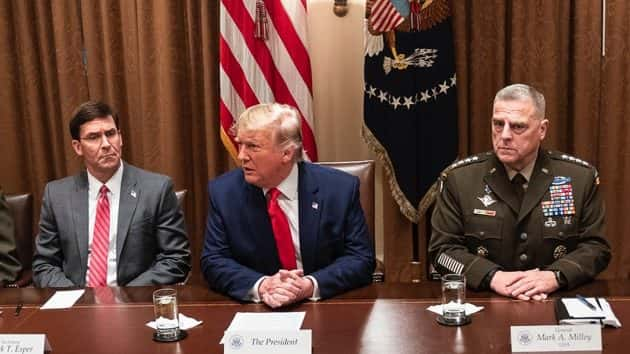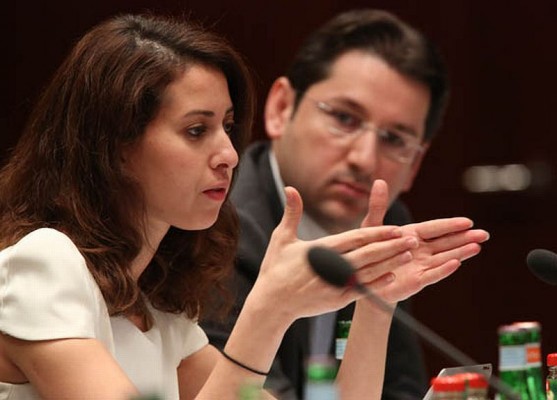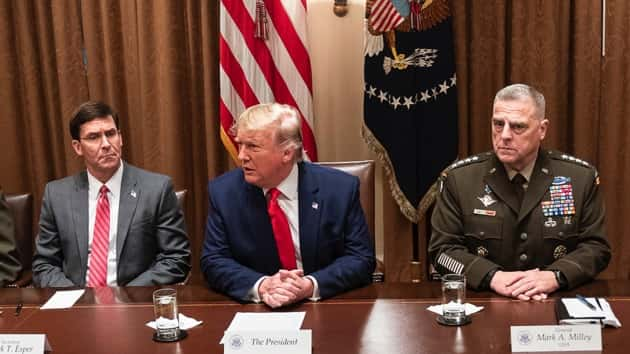
Official White House Photo by Shealah Craighead
Mike DeWald (@mike_dewald)
Full Interview Audio with Former Adviser on Syria at the Defense Department and Senior Fellow at the Middle East program with the Atlantic Council Jasmine El-Gamal:
For some longtime observers of the United States’ involvement in the Syrian conflict, President Trump’s decision to withdraw forces from the region was less of a surprise than it was how he went about getting it done.
“President Trump has consistently said that he was going to withdraw from Syria, that he had no interest in ‘forever wars’ as he called them, and that he was going to leave as soon as he deemed ISIS to be defeated.” said Jasmine El-Gamal, a former Adviser on Syria at the Department of Defense and Senior Fellow at the Atlantic Council. El-Gamal says one of the main points of criticism about the President’s policy shift was in the abrupt fashion in which it was announced and carried out.
“Usually when you make such a decision you do it in a very deliberate way,” said El-Gamal, “you talk to your allies in advance, you give people plenty of warning so that they can make their own arrangements, and you do it in a way that is really deliberate and managed very well internally and with our allies, and he didn’t do that.”

The White House’s announcement, made in a single page late night press release, led to a period of chaos and confusion between forces in the region up until this week’s announced agreement between Vice President Mike Pence, Secretary of State Mike Pompeo and Turkish President Recep Tayyip Erodgan, including reports of United States positions mistakenly being fired upon my Turkish forces.
“It was just such a chaotic couple of days,” said El-Gamal, “it took folks time to figure out what was going on, which forces were where, who was supposed to firing on whom, it was a bit of a mess.”
The goal of the five day ‘pause’ announced this week is to turn turn down the temperature, particularly the Kurds and the Turks, some amount of breathing room. El-Gamal says one of the most critical elements to United States interests surrounds the ISIS prisoners being held in the region and watched over by the SDF as well as the 12,000 ISIS fighters still in the regions. She says that, without US assistance, this responsibility could put a strain on the SDF.
“If we can’t find someone to take responsibility for them, and the US has said it won’t, that’s something that might come back to haunt us as Americans,” said El-Gamal.
The wildcard in all of this becomes Russia. El-Gamal says that the country comes out as the clear winner of the shift in United States foreign policy in Syria, and putting them at the forefront of shaping the situation on the ground in Syria. Russian President Vladimir Putin has already invited Turkish President Erodgan to a summit to discuss the future of the region.
“President Putin comes across, especially when compared to the erratic actions of President Trump, as stable and strategic and the adult in the room,” says El-Gamal, “Russia is in a good position to shape events on the ground and shape the future of Syria in way that is favorable to the Russians.”
The path forward post-‘pause’ presents some uncertainties for both sides, given that Kurdish forces were not involved of any of the discussions between the United States and Turkey. Whether the Kurds adhere to the spirit of the agreement will go a long way to giving some indication as to what the future holds.
“It’s difficult to imagine that they would voluntary weaken themselves and dismantle their fortifications and withdraw when they weren’t even part of the conversation to begin with,” said El-Gamal, “that would leave them extremely vulnerable without many good choices going forward.”


